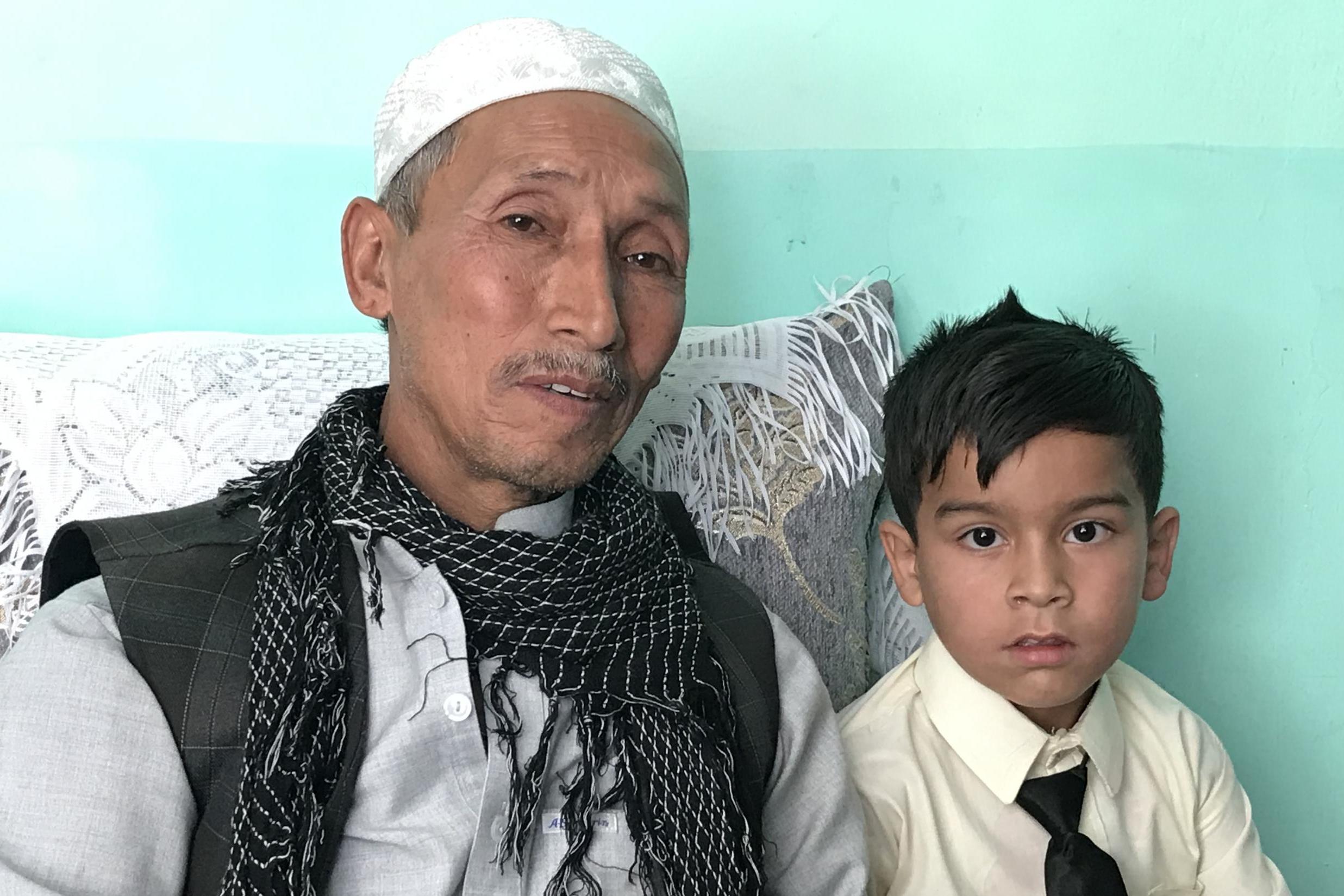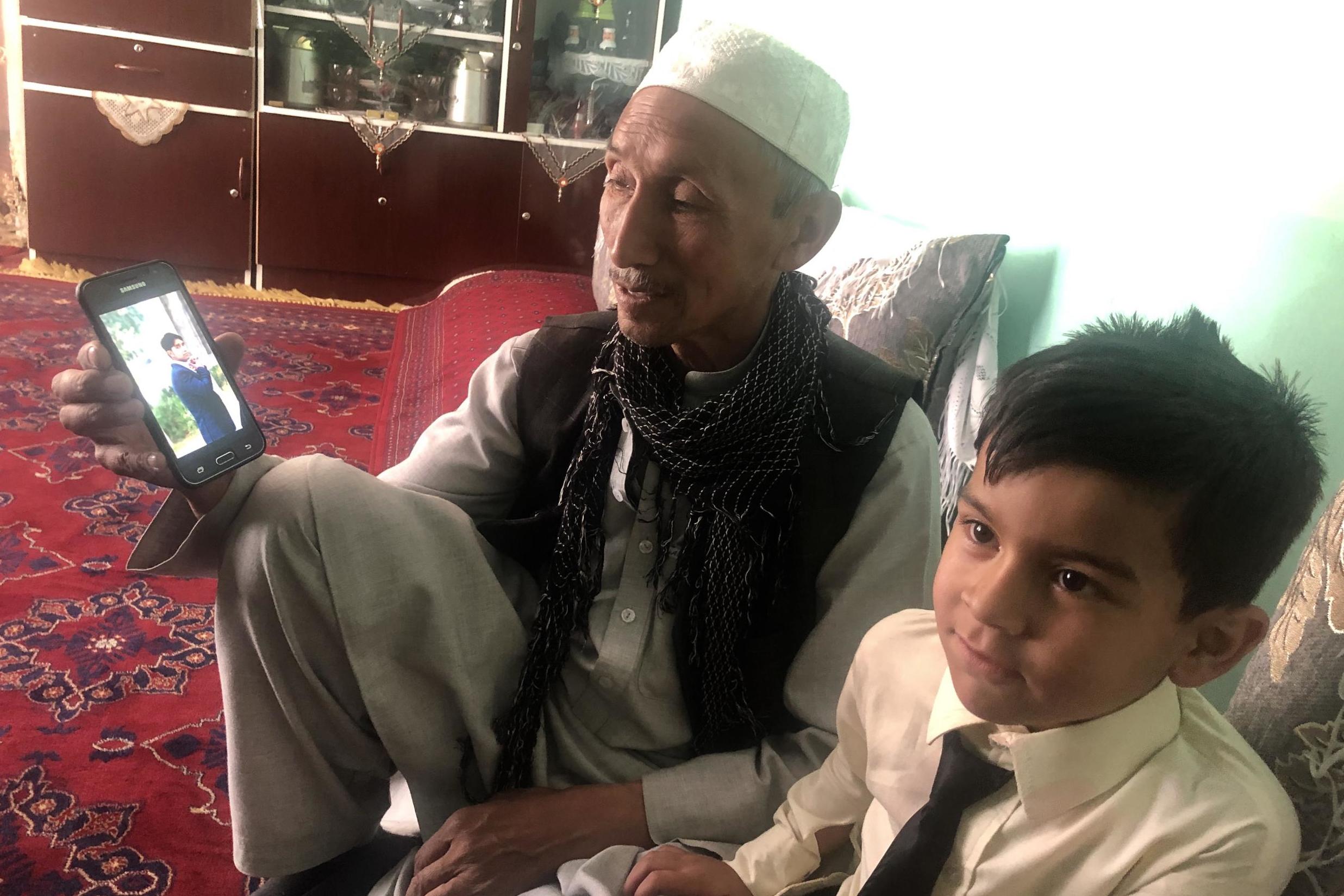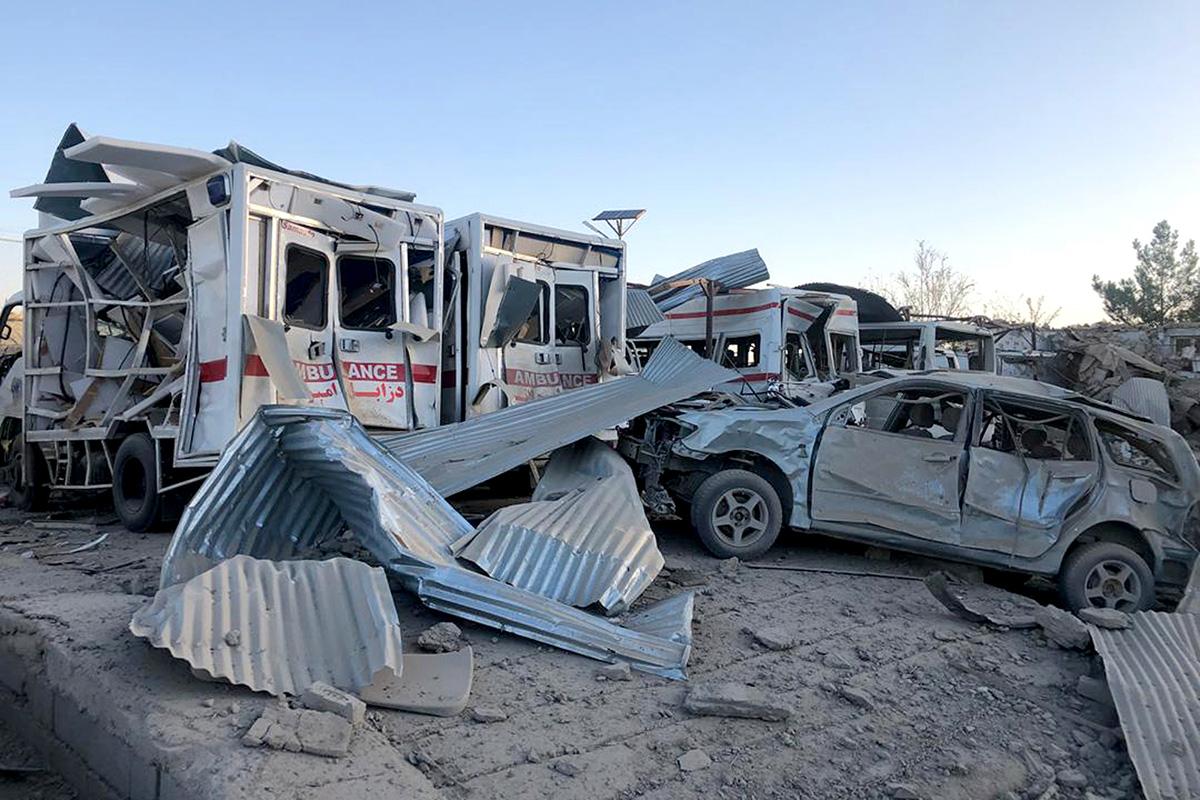Afghanistan families torn apart by deadly carnage: ‘My grandson will have to see more dead bodies when he grows up’
The country is just days away from an election but people see little hope of peace, reports Kim Sengupta in his latest dispatch from Kabul


Your support helps us to tell the story
From reproductive rights to climate change to Big Tech, The Independent is on the ground when the story is developing. Whether it's investigating the financials of Elon Musk's pro-Trump PAC or producing our latest documentary, 'The A Word', which shines a light on the American women fighting for reproductive rights, we know how important it is to parse out the facts from the messaging.
At such a critical moment in US history, we need reporters on the ground. Your donation allows us to keep sending journalists to speak to both sides of the story.
The Independent is trusted by Americans across the entire political spectrum. And unlike many other quality news outlets, we choose not to lock Americans out of our reporting and analysis with paywalls. We believe quality journalism should be available to everyone, paid for by those who can afford it.
Your support makes all the difference.Abdul Latif fainted when he saw the body lying on a mortuary table covered in blood, the throat torn apart. He had not known that his son was among those killed in the bombing.
“It took me a little while to understand who it was. I thought my son had been injured, not died... not like that. I tried to remain standing, but I started shaking, then I just blacked out, fell to the floor.”
His 31-year-old son, Abdul Jamil, was one of 63 people who died when a suicide bomber went to a wedding ceremony and blew himself up. The attack in Chardahi, in west Kabul, also injured 188 people. Isis claimed responsibility.
It was among a series of vicious attacks taking place across Afghanistan in a spike in violence, which has continued ever since.
The day after identifying Abdul Jamil at the morgue, Abdul Latif took his six-year-old grandson, Samir, to look at his father’s body.

“This may seem odd, but my father died when I too was just six, and people would not tell me for a long time what had happened to him”, he wanted to explain. “I didn’t want Samir to go through that. He deserved to know the truth. In this country, the way things are, he will see more dead bodies as he grows up, I fear so, that is the way things are.”
Decades of strife show no sign of ending. In the latest round of bloodshed, up to 40 people were reported to be killed on Sunday night when Afghan forces raided what they say was a bomb factory at Musa Qala, southern Helmand. Some of the deaths, they said, was due to the bomb-maker detonating a suicide vest.
The US military announced that 22 Taliban fighters were killed, with the province governor claiming six of them were foreigners. However, provincial councillor Abdul Majed Akhand maintained that the real figure was higher and that the majority of those killed were women and children at a wedding ceremony. Negotiations that were being held in Qatar between the US and the Taliban have ended without success.
The Afghan government was sidelined during the talks that took place between an American team headed by Zalmay Khalilzad, the Afghan-American former ambassador to Kabul, and a Taliban delegation based in Doha, augmented by senior leaders from Pakistan. Afghan politicians and officials, including president Ashraf Ghani, as well as those from other countries including senior figures in the US, have warned that the draft agreement produced gave away far too much to the Taliban without getting anything like enough in return.
But Donald Trump, the US president, desperate to bring the troops home before the US elections next year, appeared to have given the green light for a settlement. However, Mr Trump declared earlier this month that the talks were over after an American soldier was killed in a blast. Taliban bombings had continued without pause during the talks, but the victims have overwhelmingly been Afghan and did not seem to impact on the US president’s decision making process.
On 16 August, Mr Trump tweeted: “Just completed a very good meeting on Afghanistan. Many on the opposite side of this 19 year war, and us, are looking to make a deal – if possible!”
Around 110 people had been killed in the previous 36 hours, according to figures from the BBC and Afghan monitoring groups. The death toll for the month stood at 74 a day on average, and the lethal violence has continued, with 112 killed in the last seven days.
The attack on the wedding in Chardahi, the day after Mr Trump’s tweet, was also sectarian, taking place in a largely Shia area. Abdul Jamil was a professional musician who played in a band that performed at marriage ceremonies. He had, however, gone to that party as a guest.
“I heard that he was right next to the stage when this man blew up the bomb. A friend, a fellow band member he was with died instantly, another one nine days later. I had been told that Abdul Jamil had a leg broken, so that’s why it was such a shock when I saw him...” Abdul Latif’s voice faded away as he put his head in his hands, then he apologised for crying.

Abdul Jamil was the main breadwinner for his wife, three children and parents. He brought home 30,000 Afghanis (£308) a month. His father, a school caretaker, earns 5,000 Afghanis.
“It is hard, we have to think about every coin we spend, on what we can afford to eat, to make sure we spend on the children everything we can,” he said.
“It was such a waste, what happened. We loved our son, everyone liked him, and then he was killed by a man who did not even know him. But that is what happens throughout Afghanistan, families suffering. We now get worried if we can’t find our children or if they are away for a long time, We want them to have a good future, but we are worried about them.”
Samir, a friendly, polite boy, had returned from school while his grandfather was speaking. His favourite subject, he said, was English, eagerly demonstrating this by writing the alphabet and a couple of sentences. He wants to be a doctor, he said, to “help people who are hurt”.

The Taliban position on education, in any future government they are part of or run, is that they are all for it as long the contents are within Muslim tenets. Classes will be segregated between boys and girls, men and women, at all levels. Teachers, however, have been murdered by the Taliban during the years of insurgency on allegations of introducing un-Islamic views into the classroom and, on occasions, of being spies.
Girls’ schools have been targeted, including two burned down in Logar four months ago for employing male teachers. Sixty-two schools are now shut in Logar, 29 in Takhar and 22 in Kunduz. Some of the closures, explained the Taliban, are because they were due to be used as polling centres in the election.
While all “armed invaders” must leave the country, the Talibs – meaning Taliban members – have declared they would welcome foreign aid and engage in international diplomacy. But attacks have continued to target foreign civilians.
Earlier this month, just hours after Mr Khalilzad showed a draft agreement on the Doha talks to President Ghani, a truck bomb exploded outside the Green Village in the outskirts of Kabul, followed by gunmen bursting into the compound where most of the residents are from abroad. Sixteen people were killed, six of them foreign, and 119 wounded.

Five of the attackers were killed in firefights, 400 residents evacuated. A number of Western countries pulled out their personnel from Afghanistan in the aftermath.
Taliban spokesman Zabibullah Mujahid said: “We understand that peace talks are going on...But they must also understand that we are not weak and if we enter into talks, we enter from a strong position. They need to realise they can’t stop the Taliban.”
Mujib Rahman was watching television at his home across the road when the suicide bomber detonated the truck bomb at around 10 in the evening. “It was so loud that I thought it was a bomb from a plane. There was smoke and dust everywhere. I was thrown across the room and then became unconscious.”
Mujib sustained injuries to his chest and right hand from the shrapnel and flying glass and was kept in hospital for a week. He has returned to his job, driving a three-wheeled auto-rickshaw, or zaranj, but had to stop after a few hours a day because of pain. “I suppose I should think that I am lucky I did not die, so many others did that day. But this can happen again, you cannot plan anything much for the future, we don’t know what’s going to happen” he said.
Mujib’s 55-year-old father Ainuddin – who like many Afghans uses one name – said that schools had been shut early and children sent home because, the teachers said, a bombing was expected in the area. “I told my family and others to sleep outside the house. But there have been so many bombs in Kabul recently, they did not want to listen” he recalled.
“And then when nothing happened during the day, we thought it was safe. There have been problems with Green Village before because there are foreigners there.”
Angry locals held a march the next day that quickly turned to violence, with authorities blaming insurgent agent provocateurs for the trouble. The police opened fire in response injuring three people who needed hospital treatment, according to locals. Some Afghans hold that despite all that’s going on, it is pointless being too pessimistic.
Ahmed Orakzai, who was just 200m away from a bomb in Kabul last week that killed 22 people, said: “If people have the money they can go abroad or some try the stupid smuggling route to leave. But most people have no choice but to stay, it is our country, we must do the best we can.”
The 38-year-old businessman continued: “We have an election coming and everyone should take part. We are glad that Trump isn’t just pulling his soldiers out, then the Taliban would really have won. Our forces are doing most of fighting now and just need the Americans to provide things like air [support], which is necessary.
“The west knows that it played a part in putting us where we are today, it’s in the history, so they bear some responsibility. The Americans need to stay for just a bit longer, not too long. We know it’s costing them money, but it is us who are doing most of the dying.”
Read the first part of the Conflict Without End series: Afghanistan election marred by bloodshed and corruption.
Join our commenting forum
Join thought-provoking conversations, follow other Independent readers and see their replies
Comments